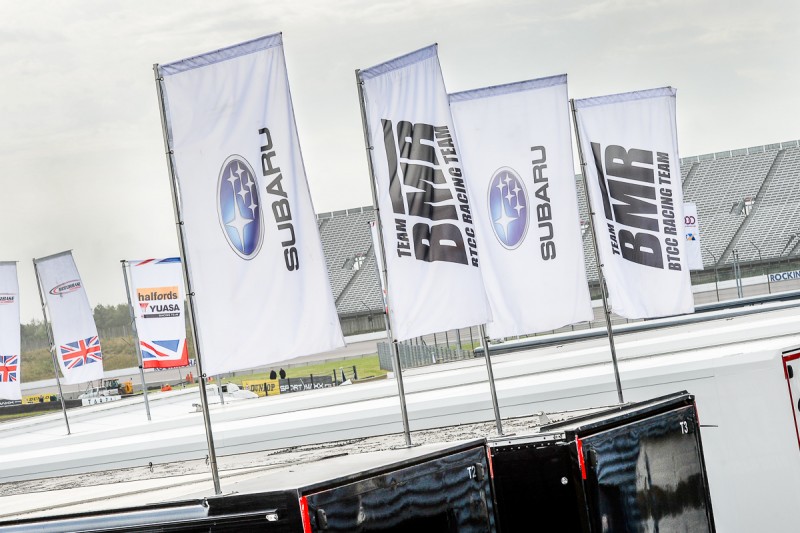Series organiser TOCA has responded to the amended statement issued by Silverline Subaru BMR Racing earlier today ahead of the British Touring Car Championship meeting at Rockingham.
Among other things, it highlights that BMR’s application to change their inlet manifold was a unique occurrence and also denies any attempt has ever, or will ever, be made to equalize straight line speed on circuit, rather the championship seeks to equalize the engine power.
The statement comes after Team BMR re-issued their statement from earlier in the week today, to include the following paragraph:
“However, we believe these test conditions do not translate to actual ‘on track’ straight line speed performance and recommend revisions moving forward if we are to achieve the common goal of ‘on track’ speed equalisation. We are looking forward to working with TOCA, the engine builders and all other teams to achieve this common goal.”
As a result, TOCA have once again issued a strongly-worded statement.
TOCA Statement in full:
“Following an additional amended statement issued by Silverline Subaru BMR Racing earlier today (27 August), Series Organiser TOCA is disappointed that it finds itself having to further clarify and correct some of the points raised.
“To suggest that their statement has been issued to ‘avoid confusion’ has unfortunately merely added to it;
“Stating that ‘other teams and manufacturers have also made similar proper Homologation Extension applications also in accordance with the Regulations’ is factually incorrect. This comment was made in relation to the BTCC Technical Working Group agreeing to Silverline Subaru BMR Racing’s request for a waiver to change its inlet manifold earlier this season.
“For the avoidance of doubt, the waiver given to BMR was a unique occurrence – in fact no BTCC team has ever before been granted a waiver during the course of the championship to change a major component that will substantially improve their performance.
“We are pleased to note that BMR, after seeing all engine power data calculations, agree with those calculations and state that they are a ‘remarkably accurate judgement of the power output of each engine at the test conditions’.
“However it later continues ‘we believe these test conditions do not translate to actual ‘on track’ straight line speed performance and recommend revisions moving forward if we are to achieve the common goal of ‘on track’ speed equalisation’.
“This we find incomprehensible. There has never been a common goal of ‘on track speed equalisation’.
“As BMR acknowledge and agree, each engine’s power is equalised. But how that then converts to on-track performance is entirely up to each team and subject to a great many variables in each car – such as aerodynamics, weight, engine cooling, differential settings, drivetrain format, gearing, corner exit speeds, rolling resistance and many more variances.
“In fact, even engines producing the same power can have differing performance characteristics, by altering their ECU mapping, using different camshaft profiles to achieve a different torque curve and such like.
“Therefore like all other major motorsport championships, we have never sought to equalise straightline speed performance. It is simply not part of the equation – in fact we do not know of any major championship (particularly one with such a great variety of engine types, drivetrains and body shapes as ours) where this is done.
“To think that all cars should be subject to a ‘speed equalisation‘ is nonsensical, in our view. To attempt to match each and every type of car to achieve identical top speeds is a naïve and virtually impossible goal – particularly with the diversity in our championship.
“Our proven and acknowledged process simply provides each team with an engine of an equal power factor. How this then relates to on-track performance is entirely down to each team and the way in which they build, develop and race their cars.
“The incredibly close lap times produced throughout the BTCC field this year (26 cars covered by less than a second at the most recent event at Knockhill), clearly demonstrates the veracity and success of the BTCC’s rules and regulations.
“To now introduce unachievable ‘speed equalisation‘ of top speed times into the equation is one that won’t be pursued.”

